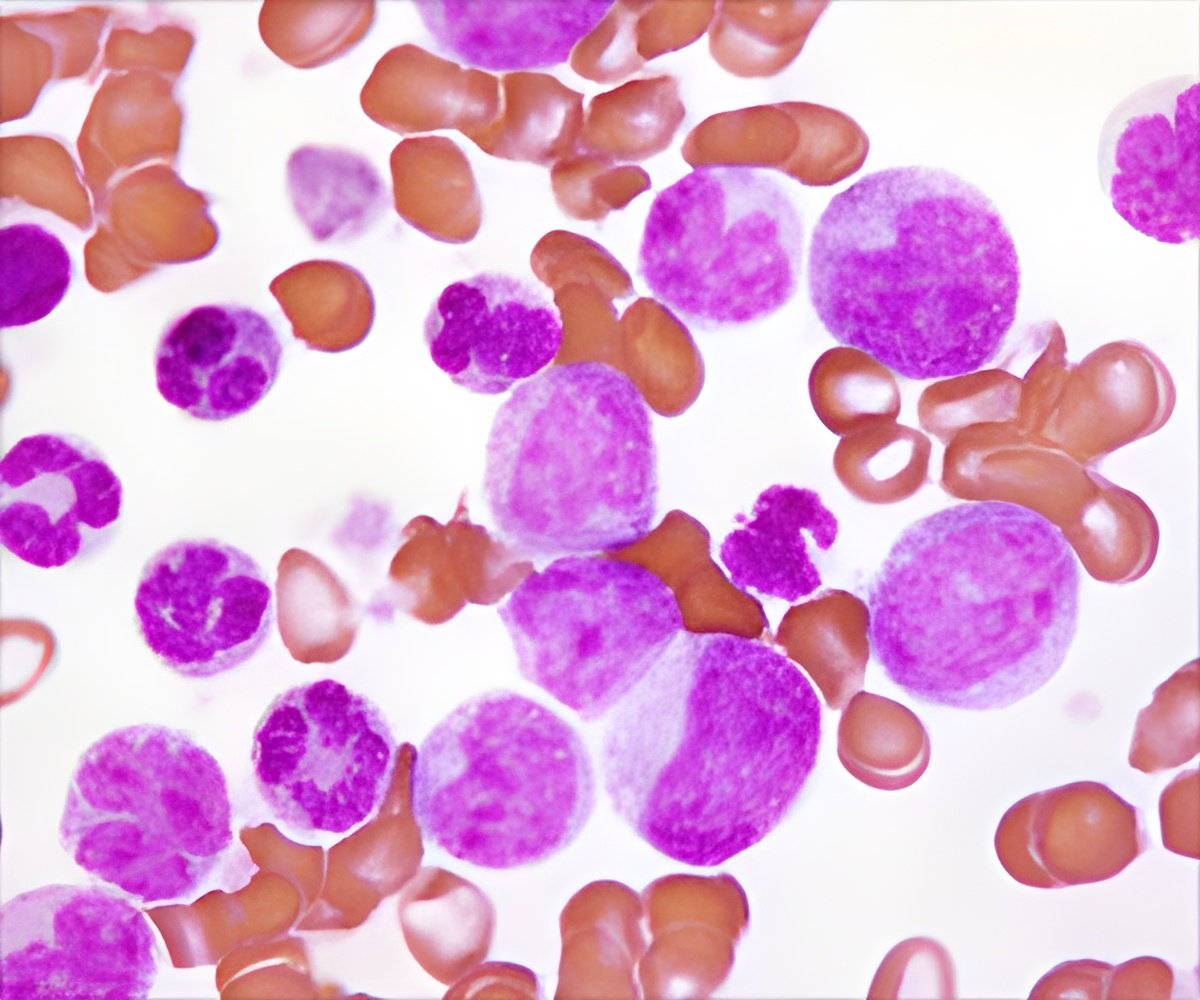Analysis of the Children’s Oncology Group trial showed that intensifying chemotherapy allowed for elimination of radiation in 90% of children with leukemia.

‘With new combination treatment(Bortezomib with chemotherapy), overall survival for children and adults with T-ALL and T-LL improved drastically.’
Read More..




The findings were published in the Journal of Clinical Oncology.Read More..
“The results of this trial have the potential to change the standard of care for patients with T-cell lymphoblastic lymphoma and T-cell acute lymphoblastic leukemia”, said study chair and first author David T. Teachey, MD, an attending physician and Director of Clinical Research at the Center for Childhood Cancer Research at Children’s Hospital of Philadelphia.
“The data show that most patients with T-ALL no longer need cranial radiation for cure and also suggest bortezomib should be considered as part of the new standard of care for newly diagnosed patients with T-cell lymphoblastic lymphoma”.
With advances in treatment, overall survival for children with T-ALL and T-LL approximates that of B-cell acute lymphoblastic leukemia (B-ALL) and B-cell lymphoblastic lymphoma (B-LL), with a 5-year survival rate of approximately 85%.
However, less than 35% of patients with relapsed T-ALL and T-LL survive. To improve outcomes in these patients, COG trials have focused on different strategies to prevent relapse in newly diagnosed patients, including refining risk stratification, introducing new drugs and treatments, and intensifying chemotherapy.
Advertisement
Therefore, in the AALL1231 (NCT02112916) trial, the investigators modified the treatment further, utilizing the steroid dexamethasone instead of prednisone during chemotherapy and adding two extra doses of pegaspargase with a goal of eliminating CRT in most patients with T-ALL.
Advertisement
For patients with T-LL, both the 4-year event-free survival and overall survival were significantly improved for patients on bortezomib plus chemotherapy versus chemotherapy alone: 86.4% and 89.5% vs. 76.5% and 78.3%, respectively. The researchers also did not observe any excess toxicity with bortezomib.
“This is the first trial demonstrating an overall survival benefit for newly diagnosed pediatric T-LL with a small molecule inhibitor”, said senior study author Stephen P. Hunger, MD, Chief of the Division of Oncology, Director of the Center for Childhood Cancer Research, and holder of the Jeffrey E. Perelman Distinguished Chair in the Department of Pediatrics at Children’s Hospital of Philadelphia.
“Before this study, the only drugs that have improved survival for newly diagnosed T-ALL/T-LL patients have been cytotoxic chemotherapeutics. The success of bortezomib in this trial could potentially change the approach to the frontline treatment of T-LL”.
Although overall outcomes in patients with T-ALL were not statistically significantly improved by bortezomib, the researchers were able to eliminate CRT in nearly all T-ALL patients on bortezomib and still achieve excellent outcomes for most patients.
Indeed, whereas 90.8% of T-ALL patients in the earlier trial received CRT, less than 10% received it in this trial, and yet patients who did not receive CRT had no statistical differences in outcomes.
The COG trial involved 212 sites around the world. The study was funded by the National Cancer Institute, a part of the National Institutes of Health (R01CA193776, U10CA180886, U24CA196173, U10CA180899, X01HD100702, R03CA256550, R01CA264837), the Leukemia and Lymphoma Society, St. Baldrick's Foundation, and the American Lebanese Syrian Associated Charities.
The study was supported by Millennium Pharmaceuticals, Inc. through a Cooperative Research and Development Agreement with the NCI.
Source-Medindia









